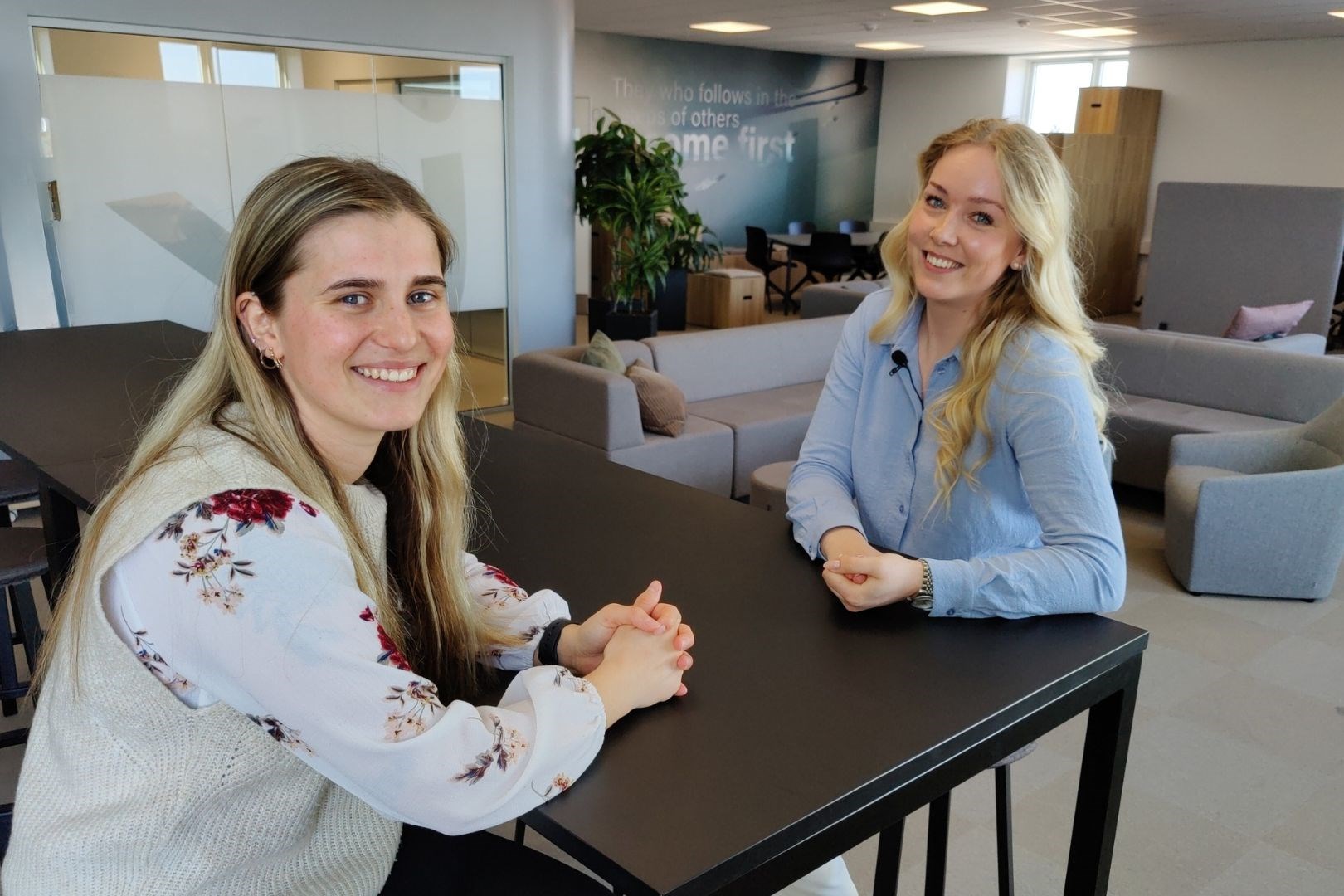Administrative Management
Administrative Management is an Academic Profession degree of 120 ECTS – giving you the tools of becoming a versatile administrative coordinator with control over things.
Do you like to be the one who has the overview, and do you enjoy working in a structured and detail-oriented manner? The education gives you a broad knowledge of the organization of companies and the society they have to operate in. You can find jobs in both the private business world and the public sector.
Typically, you will get to sit in coordinating positions, where your knowledge of collaboration, communication and organization will come in handy. For example, you can become an administrative coordinator, case manager, HR assistant, project manager, team leader or consultant.

Facts
Title
Administrative Coordinator
Education Level
Academic Profession Degree - 120 ECTS points
Duration
2 years
Internship
3 months SU-eligible internship
Study Start
August September
Location
Horsens
Language
Danish
Content and structure
The Administrative Coordinator education combines theory and practice. The first 3 semesters take place at the Academy, where the teaching takes place in smaller groups.
The teaching is practice-oriented and alternates between group teaching and work in study groups.
Among other things, you will participate in company visits and work with current cases from companies or public organizations
In the fourth and last semester, you must do an internship. Here you must test your theoretical knowledge in either a private company or a public institution. After the internship, you write the final exam project.
Curriculum
-
Social Studies
In social studies, we examine important social conditions based on the Danish welfare state. We also go a step deeper and work with concepts such as power, representation of interests, and politics, among other things. We do this to gain a basic understanding of the mechanisms at play in society's ongoing development.
We also examine the framework for cooperation between the private and public sectors. All to enable you to enter into collaboration across disciplines and organizations.
-
Business Law
The legal subjects in the Administrative Coordinator education give you an understanding of the basic legal method – and how it is applied in the administrative field.
We also work with the creation of laws and other binding regulations:
Where do laws and regulations come from?
And how do they become applicable law?In addition, we work with administrative law, case management, and personnel law.
All of this enables you to cooperate and participate in the legally sound processing of cases in both private and public settings.
-
Communication
Communication can be seen as an overarching theme that speaks to all the subject areas of the education.
There is a focus on communication theories and communication models as well as concrete tools for oral and personal communication, as well as written communication.
Also contains internal and external company communication.
-
Economics
As an administrative coordinator, you will be introduced to social economics, international relations, and business economics.
During the course, you will gain an understanding of the various problems that can arise when it comes to budgeting, project finance, and the triple bottom line in private companies and the public sector.
-
Organisation
Organization includes many different elements of the education.
The first part is centered around the individual and society, which is about an organization's internal and external framework conditions and conditions; among other things, theories and models for analyzing and understanding an organization and its culture.
What does an organization consist of?
What is motivation and how can an organization work with motivation?The subject area also offers knowledge about project and team collaboration. The teaching of methods is also placed under organization. Here is an introduction to data collection; qualitative and quantitative methods and project writing.
In the second semester, the organizational subject focuses on administration and collaboration, where central theories and models around business models and business understanding will be in play, together with how the organization can work with innovation and make work processes more efficient, for example through change management.
You will also learn about leadership, different leadership styles, and leadership types.
-
Data processing, service design and dissemination
This part is about how an organization can work with quality development and quality assurance through evaluations.
In the course, you will be introduced to evaluation theory and evaluation models, as well as how these evaluations can generate data that can be used in the organization to work with the optimization of services.
You will gain knowledge about ethics and how to work with GDPR in connection with data processing.
-
HR
In this subject, we work with the conditions that apply to the Danish labor market.
In the HR area, we work with the recruitment, development, retention, and settlement of employees.
This work requires that a large number of factors linked to the people who work in the company are taken into account. For example, the overall HR strategy, personnel policy, and the working environment (physical and psychological).The field of personnel law is characterized by collective law, which is something unique in a global context. But there are also a large number of laws and other regulations that the company's HR function must be aware of.
In this subject, you learn to participate in and take care of central functions in the company's HR work.
-
Process and project management
In the subject process and project management, work is done with project management and project management, including dynamic processes and innovation.
We get around theories and models that are relevant to being able to lead and manage projects.
We focus on process optimization and mapping activity chains, all in order to create the best result.
Change management and communication are important elements in project management and will be included in the process.
Was this article helpful?